
Why children lie or understate the truth
Sometimes children deceive their parents. Sometimes it is a harmless fantasy, for example, a child is sure that they have superpowers. And sometimes the lie takes on a different level: the child lies about their grades, secretly goes out in bad company and mysteriously obtains expensive gadgets.
Together with psychologist Olga Olifer we have learnt why children lie, how lies affect the formation of personality and what to do about it.

Chief regional non-staff educational psychologist, General Director of the Centre for the Development of Psychology and Childhood ‘Psilogy’. 18 years of work experience.
Why children's lying is a problem
At first glance it seems that children's lies are a problem for parents: they do not know what is going on in the child's life, and because of this they cannot trust him or here and be sure that they are safe. But in fact, lying is primarily harmful to the children themselves.
When a child often lies, it becomes a way of life. As a result, the children do not want to study, socialise with their peers and go out in groups. They grow into adults who live with a constant sense of apathy and a desire to close themselves off from everyone. This happens because pathological lying is very stressful on the psyche and exhausting: you need to remember who, what and when you said, so as not to get caught lying. It is easier not to interact with anyone at all.
Children begin to lie at the age of 3-5 years, and it is normal
As early as three years old, children are deceiving their parents and other adults. At this age, the child begins to realise himself as a person, he develops higher mental functions such as imagination. So, in fact, it is not actual lying, but children's fantasies, which help to develop the brain.
What parents should do? Treat fantasies calmly, but show that mum and dad understand where the fiction is and where the truth is.
For example, a child may say: ‘Mum, I am a giant!’ To this you can answer them: ‘Yes, you are growing very fast, because you eat and sleep well’. Through this response, the child will learn to separate fantasy and the real world.
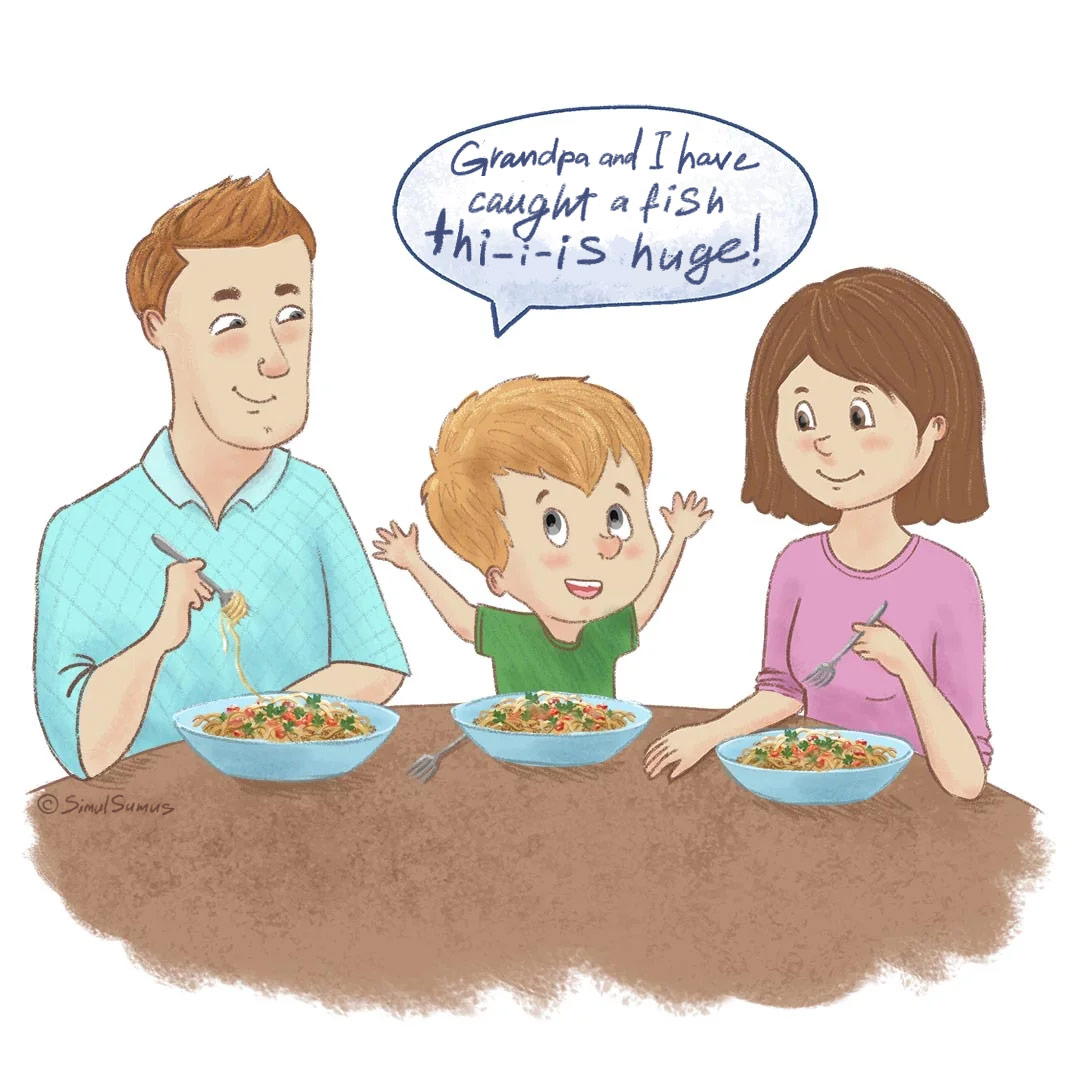
When a child over the age of 6 or 7 is constantly lying or fantasising, it is worth thinking about why they are doing it
If your son or daughter lies from time to time, it's probably just to test boundaries with you and the rest of the world. In this case, an ironic attitude will help: explain to your child that you understand that they are lying, or turn it into a joke. Say something like, ‘Yes, you are such a sly one, you can fool everyone!’
But, if the child lies systematically, it is worthwhile to look into the reasons. Here's why children may lie:
Child is not satisfied with his role in society. For example, a very quiet girl may say: ‘I sang in the school corridor today in front of everyone!’ Or an overweight boy may share how he ran the fastest cross-country race in school.
What to do: I would advise you to keep silent and pretend you didn't hear anything. It is important to let the child know that you have noticed the trickery. After a week, in a relaxed environment, suggest that they go to a singing class or to the gym together with you. In this way you will help the child to cope with their problem and offer them support.
Child has an unmet need for emotional contact with their parents. Sometimes parents are not very involved with their son or daughter: They don't notice their achievements and don't listen to stories about their friends and school. In this case, a child may lie to attract attention and get an emotional response from the parents.
What to do: spare 15 minutes a day to communicate with the child. Put aside all chores, put the phone away and ask your son or daughter how they are doing. Try not to read notations and do not ask: ‘Have you done your homework?’, but just listen.
Child is afraid of being scolded or punished for a misdeed. Sometimes children make mistakes, for example, they do not put away toys, poorly wash dishes or come from a walk half an hour later. And parents in response decide to teach them a lesson: deprive them of cartoons, computer, sweets, and sometimes apply corporal punishment. Because of this, next time due to fear of punishment the child will make up excuses: they didn't wash the dishes because they were doing their homework; they came back late because the bus broke down.
What to do: discuss the problem. Also, keep your word. If you promised ‘Tell me what happened, I won't scold or punish you,’ then actually don't scold or punish the child.
Child does not want to be compared with others. At school, children are given grades and this rating system is already enough to allow for comparison with others. But parents at home often fuel the fire by saying: ‘Why did other children get B's and A's and you got a C?’ Сhildren, like any other person, are uncomfortable with comparisons not in their favour. So the next time the child may say: ‘Everyone got C's, mum!’.
What to do: try not to compare the child with other children.
Child is deprived of personal space and overprotected. From the age of seven, children develop the need to make their own decisions: to choose with whom to be friends, till which hour to be out, what clothes to wear. But often anxious parents deprive their children of this need: it is important to them that the child lives strictly by the clock, befriends only good children and do not go on walk far from home. Because of this, it is easier for a child to lie: to say that they went for a walk with a good child, while they themself go to a junkyard with their classmates.
What to do: build a trustful relationship with the child and learn to trust each other, which may require family sessions with a psychologist.
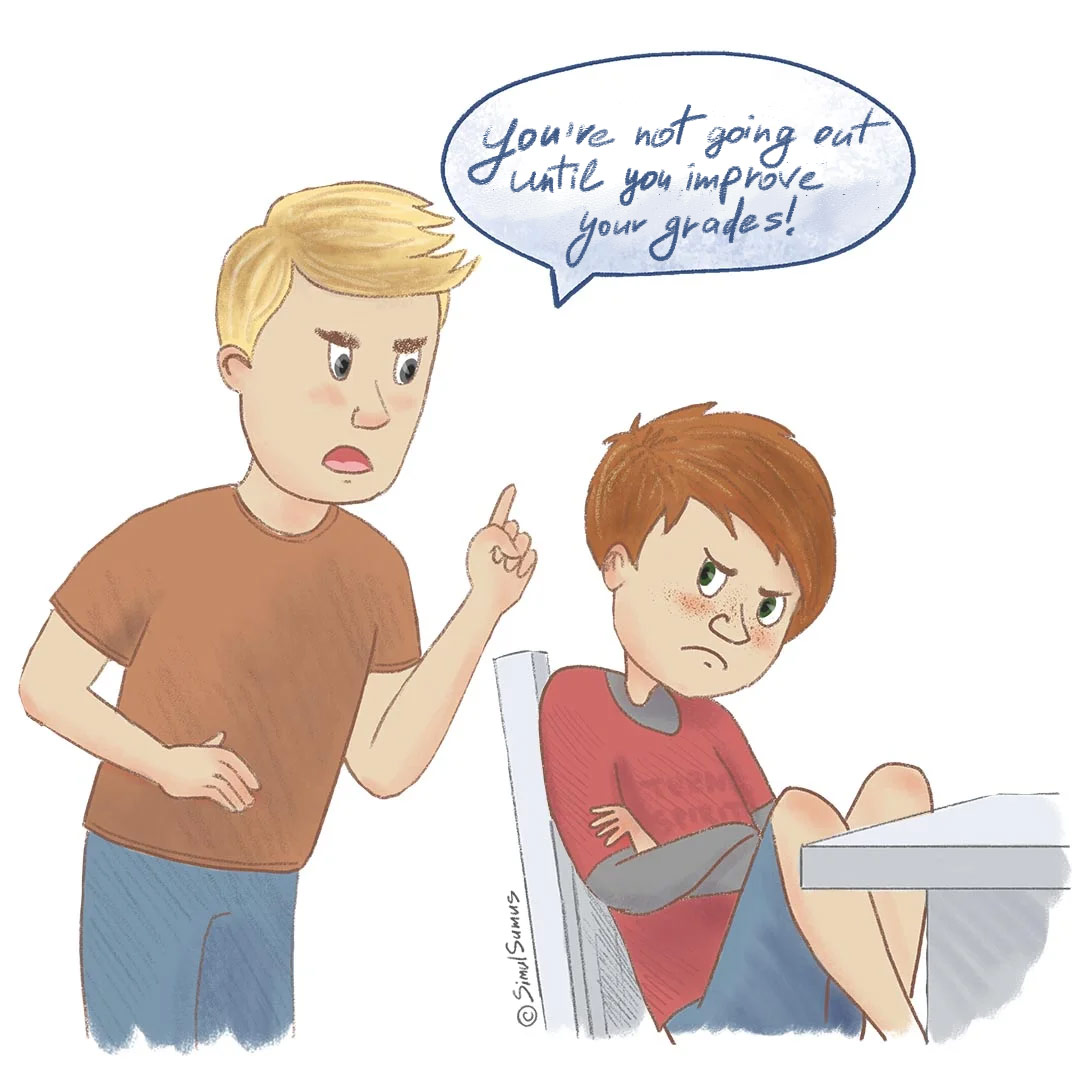
How to behave if you have caught your child committing a serious lie
Sometimes children's lies harm not only the relationship with parents and the development of the child's personality, but also border on breaking the law. For example, your son or daughter may acquire an expensive phone, and when asked about it, you get only ‘A friend gave it to me’.
In this case, it is no longer worth pretending, silence the problem and think that everything will settle by itself. If a teenager deceives you about expensive gifts, school attendance and addictions, it means that something went wrong. Most likely, you have lost trust in your relationship, and it will be difficult to cope with this situation on your own. Family psychotherapy will help: mum, dad or another important adult can go to a psychologist together with the child and rebuild the connection.
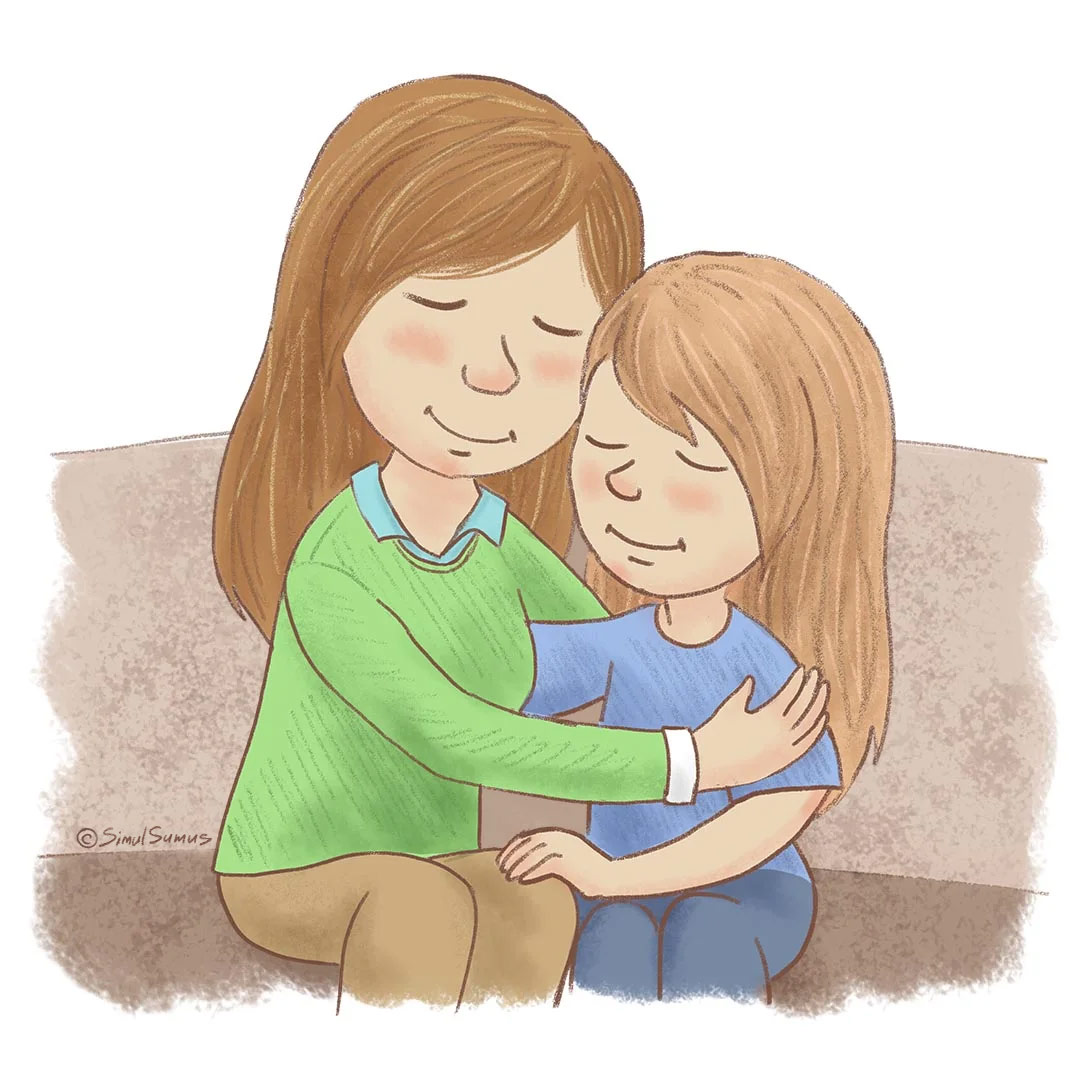
How to explain to your child that sometimes lying is acceptable
Children learn a lot (almost everything) by following their parents' example. Therefore, a child may not understand why it is wrong to lie, if the mother praises the dress of a neighbour on a visit, and at home says to the father: ‘Well, what kind of tasteless raggs is this’.
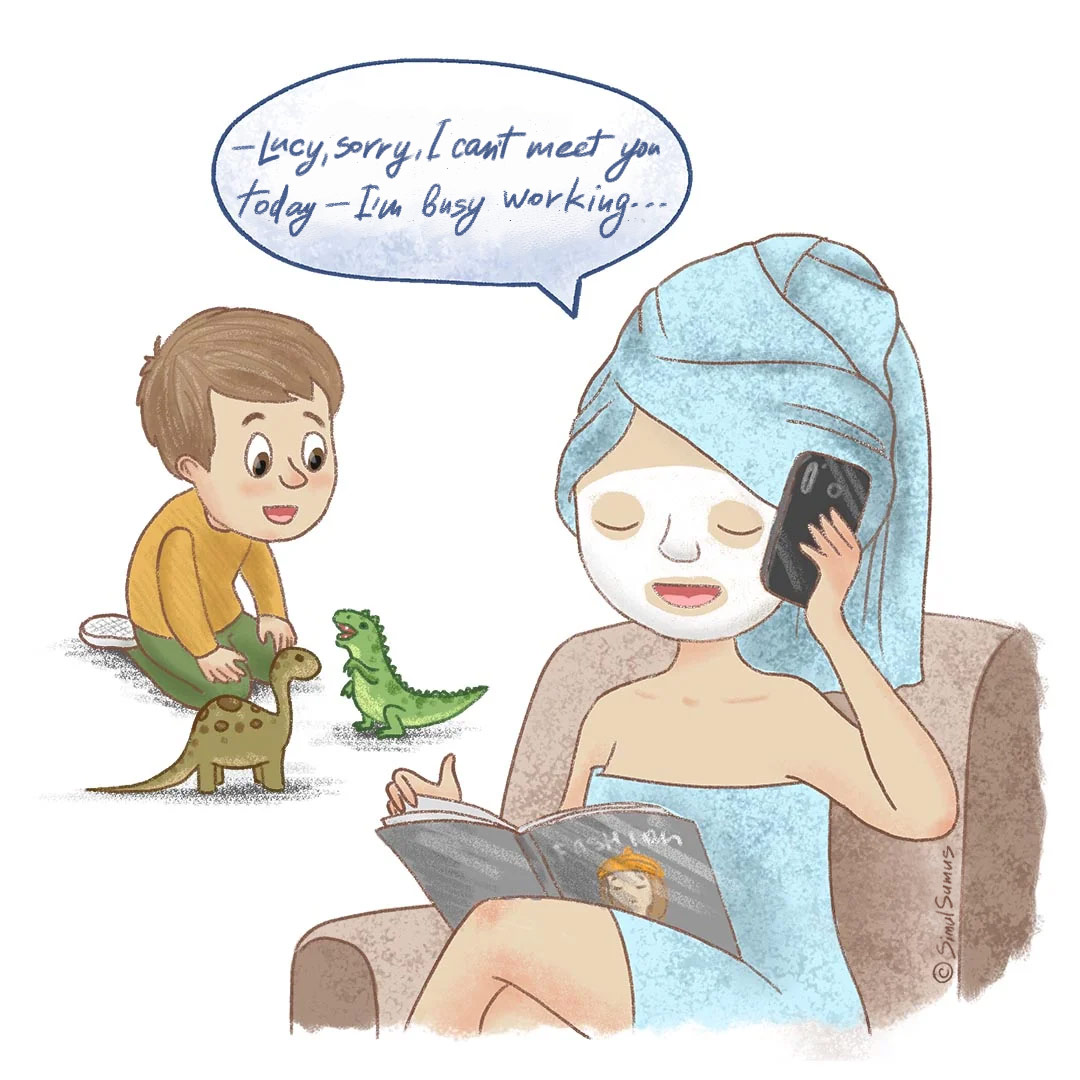
In this case, you need to explain to the child that people are not always honest with each other. They do so in order not to offend each other. Therefore, if their friend's toy is not to their liking, it is worth keeping silent, not criticising it.
And there are also situations when telling not the whole truth is vital. For example, a stranger knocks on the door, and there are no adults at home, the child should either keep silent or say: ‘Daddy is now in the bathroom, he can not open’.
It is worth conveying to the child that there are people with whom it is important to be always honest. They are mum, dad, grandma, grandpa and other close relatives. But there are strangers, those who knock on the door or call to look at the kitten. With them you need to be cunning and prudent: do not talk to them, pretend that mum or dad have left for a couple of seconds, do not believe their pitiful stories about animals in trouble.
In short: what to do if a child is dishonest?
- Do not worry if the child is not more than five years old: these are fantasies that help to explore the world and develop cognitive functions.
- Understand the reasons if the child is over six years old. Perhaps they feel lonely, are misunderstood, not satisfied with hyperprotection or want to be more significant in society.
- If the child has lied about a serious matter, this is a reason to start therapy together.
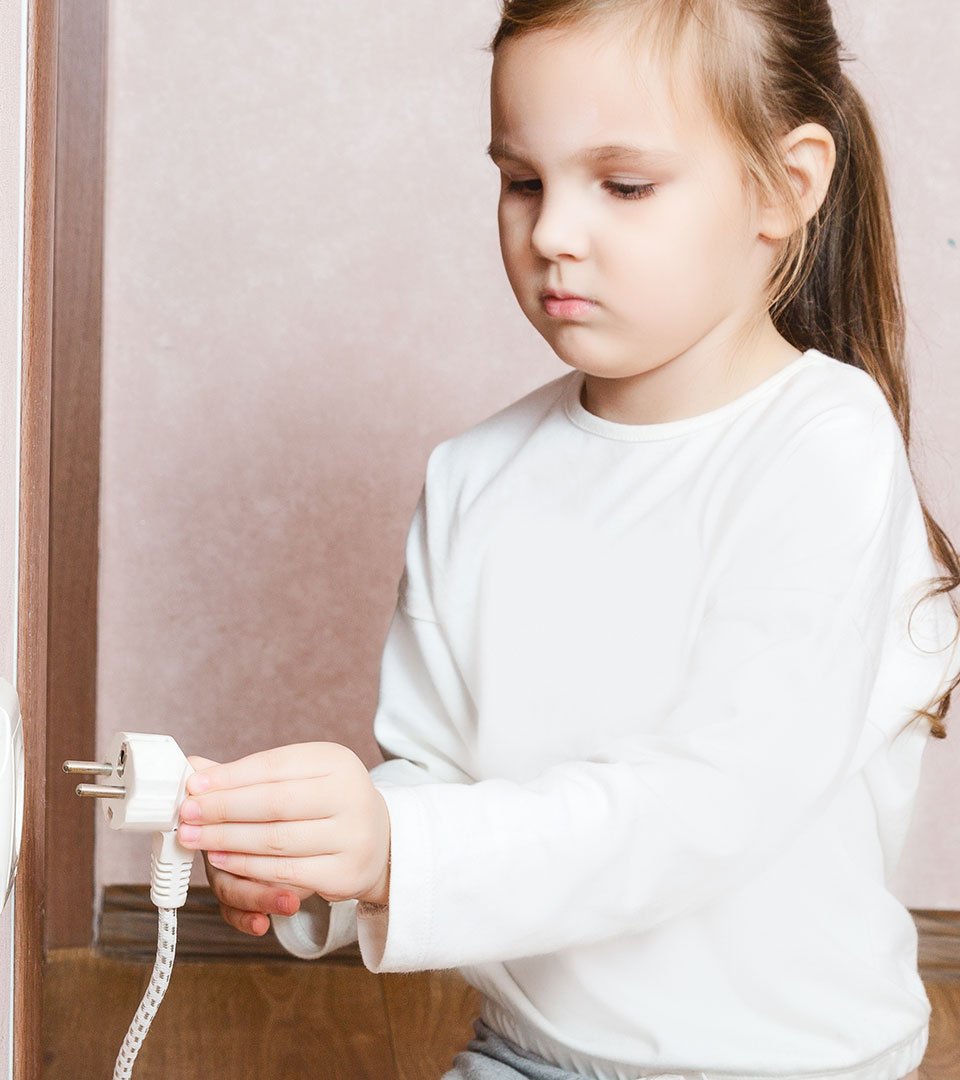
Some fires and fatalities could have been avoided if children knew the rules of fire safety. In stressful situations, even an adult may get confused, and children tend to do so much often. From time to time, talk to your child about the rules and simulate situations so that they can easily remember what to do to prevent a fire and escape in case of danger.